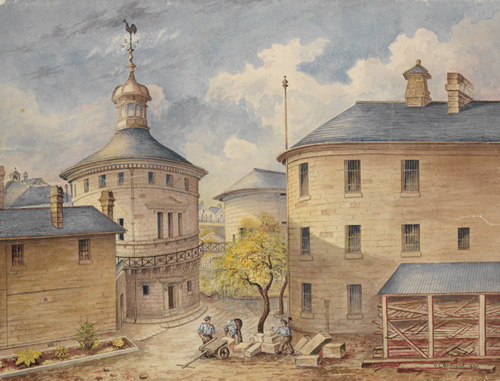Hard times
At 35 years of age, most of Lawson's best work was done and the next phase of his life was characterised by a downward spiral.
Suffering from depression and alcoholism, between 1905 and 1910 Lawson did several short stints of 'time' at Darlinghurst Gaol for repeated public drunkenness and failure to pay child support. He also made numerous visits to the Darlinghurst Reception House,
which operated as a psychiatric assessment hospital catering for mentally ill patients who would normally have been placed in gaol.
As friends attempted to help Lawson deal with his alcohol addiction, the author also spent some time in rehabilitation sanatoriums.
Of his drinking, Lawson said that he turned to alcohol to forget his shyness, his deafness, and for relief and refuge from the many things he felt so keenly but which it seemed he would never be able to attain. Only when he was drinking, did the author feel confident, able to face the world and capable of doing anything.
According to George Robertson, the police were always very kind to Lawson. On many occasions he was never formally 'charged' or 'committed'. He was often picked up on the streets (or he came in of his own accord) and kept in the cells to sober up, only being released after the the public houses had closed. Lawson constantly lacked money, due to unfortunate royalty deals made with his publishers over the years. When short of funds he would write to friends and colleagues seeking payment of debts or asking for loans, often using his landlady, Mrs Isabel Byers, as his messenger.
> See documents and images relating to Henry Lawson's time in Darlinghurst Gaol
Mrs Byers, a fellow poet, had befriended Lawson in 1904, and continued to provide the author with food and shelter for the rest of his life. Deeply depressed and perpetually poor, Lawson continued to write but, on his release from hospital or gaol, he quickly reverted to his old ways and returned to the bottle. In 1908, he recorded his time at Darlinghurst Gaol in the poem, ‘One Hundred and Three’, his prison number while he was incarcerated there.
